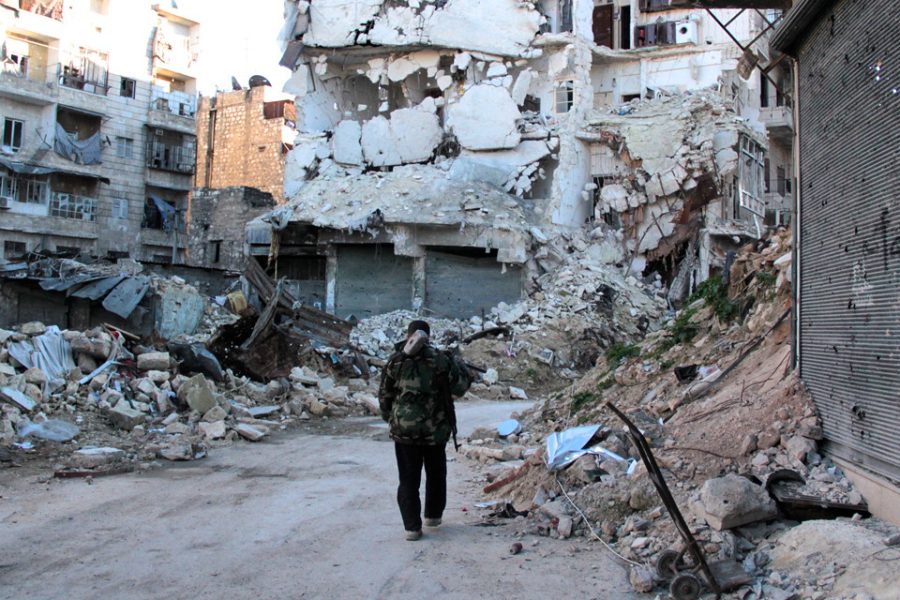Syrian sanction exemption is a poor excuse for humanitarianism
March 6, 2023
The delayed international response to the 7.8-magnitude earthquake that rocked Turkey and Syria on Feb. 6 is directly responsible for the deaths and injury of thousands of civilians.
The death toll in Syria reached over 4,500 deaths and 8,500 injuries on Feb. 21, according to the United Nations Office for the Coordination of Humanitarian Affairs.
United States economic sanctions on Syria, coupled with the prevention of aid from its northwest borders by Syrian President Bashar Al-Assad, have left Syrians without access to critical search-and-rescue resources.
A dismal 5% of impacted areas received search and rescue aid as of Feb. 10, a full five days after disaster struck, according to the U.N.
In 2011, protests erupted across Syria when Al-Assad oversaw the capture and torture of 15 boys charged with writing graffiti in support of the Arab Spring, a series of political uprisings in the Middle East and North Africa.
Al-Assad’s response motivated the United States to place economic sanctions on Syria in a desultory attempt to force him to establish a more just and democratic government after a period of authoritarian rule.
Bashar responded to the protests by ordering the murder and mass incarceration of Syrian protesters, causing some Syrians to defect from the military and form the rebel group Free Syrian Army.
FSA sought to overthrow the tyrannical government; the tensions between the rebels and the bureaucracy eventually catalyzed a civil war that is still ongoing today.
In 2014, the United States sent about 2,000 troops to Syria and launched multiple airstrikes on the nation in the following years.
The United States’ intervention in Syria has been notoriously disapproved of by Syrians who say any effort to create peace should’ve emphasized protecting civilians who have since been killed, imprisoned or forced into poverty by the regime.
In an interview with the Foreign Policy Research Institute, former president of the National Coalition for Syrian Revolutionary and Opposition Forces Moaz Al-Khatib described the military intervention years after the advancement of the revolution “as an attempt to ‘rescue the regime,’ to do away with the revolution, or to begin geographically dividing up Syria.”
Other foreign leaders echoed disapproval of U.S. intervention in Syria. Chinese U.N. ambassadors accusing the United States of stealing Syrian oil, consequently depriving the nation of its wealth and recourses at a time when it was especially needed, through “illegal banditing” and “looting”.
Despite U.S. sanctions staving off financial relief for over a decade, the regime has not relented. The humanitarian crisis has only worsened. 90% of the country’s 4.4 million citizens are living under the poverty line and relying on minimal aid, according to the World Food Program.
In the wake of the recent natural disasters in Syria, calls to lift U.S. sanctions have heightened, reigniting a debate between the Arab diaspora and American government organizations.
“Lifting of the sanctions will open the doors for additional and supplemental aid that will provide immediate relief to those in need,” the American-Arab Anti-Discrimination Committee, one of the largest Arab American civil rights organizations in the U.S., said in a statement calling for the immediate lifting of sanctions on Syria.
On Feb. 9, the U.S. Treasury Department announced a 180-day sanction exemption under the guise of philanthropy stating that sanctions “will not stand in the way” of life-saving relief.
However, the Syrian ministry responded that the exemption is a poor attempt to make the United States appear to be the Arab world’s humanitarian savior meanwhile “facts on the ground proved its falsehood.”






